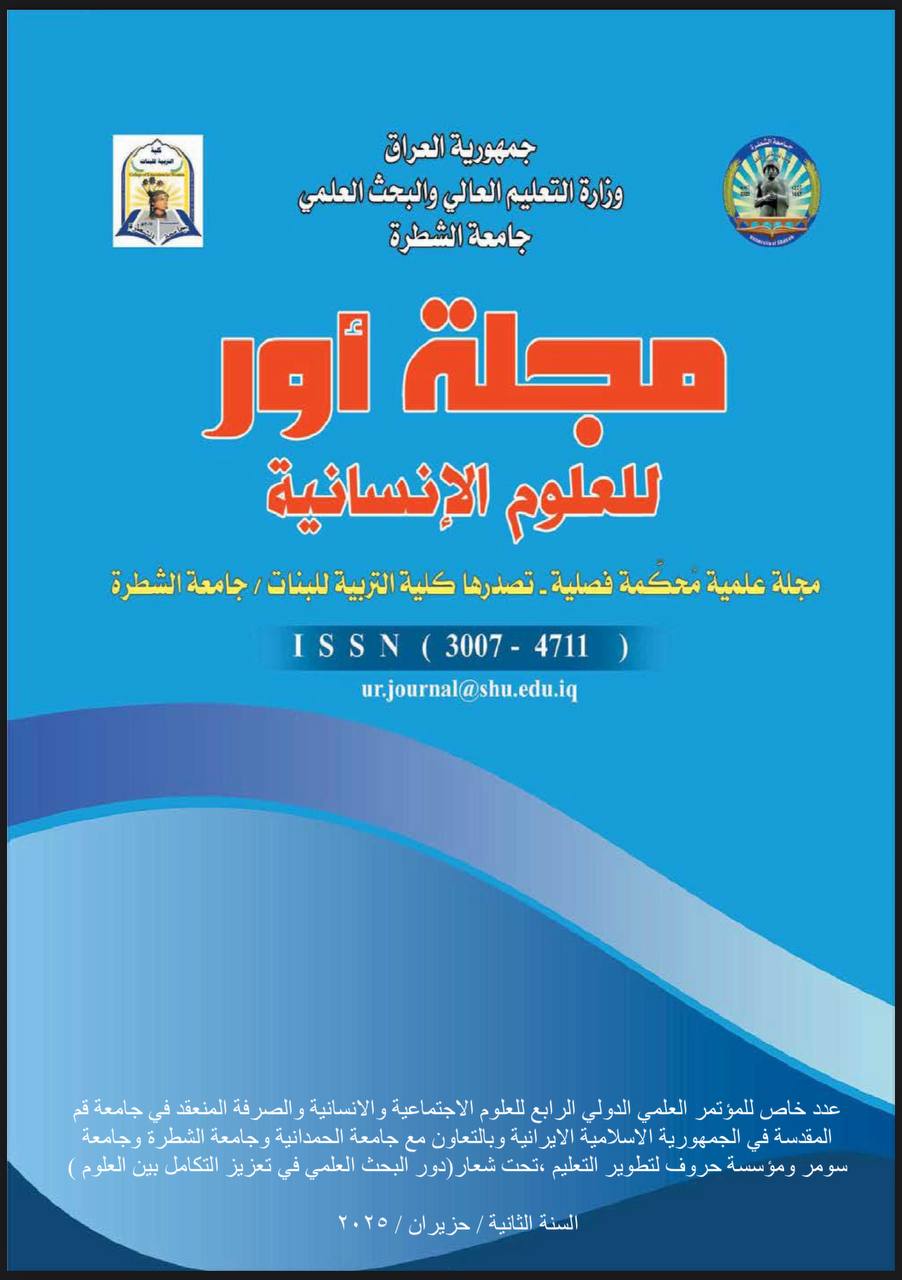Abstract
This study explores the topic of "Strategies of Influence in the Lebanese Civil War: Analyzing the Armed Conflict in the War of the Camps between the Amal Movement, the Palestine Liberation Organization, and Hezbollah (1985–1990)" as one of the most pivotal phases in the trajectory of the Lebanese Civil War, during which local, regional, and international dimensions intertwined in an unprecedented manner. The War of the Camps represented a complex armed confrontation that went beyond direct military engagements, reflecting a broader competition over influence and political representation within both the Lebanese and Palestinian arenas. The conflict occurred in the aftermath of the collapse of previous political and military balances, especially following the Israeli invasion of Lebanon in 1982 and the subsequent withdrawal of the PLO from Beirut. In this context, Lebanese armed factions like the Amal Movement emerged to fill the resulting political and security vacuum, particularly in Shiite-majority areas in the south and the suburbs of Beirut. Amal played a central role in attempting to assert control over Palestinian camps, under the pretext of preventing them from becoming military bases or safe havens for forces opposing Syria's presence in Lebanon. This led to open confrontation with the PLO, which sought to reestablish its footing in Lebanon. Hezbollah, as a rising force aligned with the Iranian-Syrian axis, also became involved in the conflict, albeit at times indirectly. The war thus became an expression of a multi-level strategic struggle, where sectarian, regional, and international dynamics intersected. The conflict had significant repercussions on Palestinian refugees in Lebanon, who were caught between the front lines and the political-military reckoning. This research aims to analyze the dynamics of the conflict through the lens of the strategies of influence employed by the three parties, assessing its impact on the course of the Lebanese Civil War, the Palestinian cause, and regional power balances. It also highlights Syria's role in shaping the course of events, extending beyond the local character of the conflict.
Keywords
Amal Movement
Palestine Liberation Organization
Palestinian-Lebanese Conflict
Regional Influence
War of the Camps
Abstract
يتناول هذا البحث موضوع "استراتيجيات النفوذ في الحرب الأهلية اللبنانية: تحليل الصراع المسلح في حرب المخيمات بين حركة أمل، منظمة التحرير الفلسطينية، وحزب الله (1985–1990)" بوصفه أحد أبرز المحطات المفصلية في مسار الحرب الأهلية اللبنانية، حيث تشابكت فيه الأبعاد المحلية والإقليمية والدولية بشكل غير مسبوق. فقد مثلت حرب المخيمات صراعًا مسلحًا معقدًا، تجاوز البعد العسكري المباشر، ليعكس تنافسًا على النفوذ والتمثيل السياسي داخل الساحة اللبنانية والفلسطينية على حد سواء. وقد جاءت هذه الحرب في سياق انهيار التوازنات السياسية والعسكرية التي كانت قائمة قبل الاجتياح الإسرائيلي للبنان عام 1982، وما أعقب ذلك من انسحاب منظمة التحرير الفلسطينية من بيروت، وبروز قوى لبنانية مسلحة مثل حركة أمل التي سعت إلى ملء الفراغ السياسي والعسكري في المناطق ذات الغالبية الشيعية، لا سيما في الجنوب وضواحي بيروت. وفي هذا السياق، لعبت حركة أمل دورًا محوريًا في السعي لفرض سيطرتها على المخيمات الفلسطينية، بحجة منع تحولها إلى قواعد عسكرية أو ملاذ آمن للقوى المناهضة للوجود السوري في لبنان، وهو ما دفعها إلى مواجهة مفتوحة مع منظمة التحرير الفلسطينية التي كانت تحاول إعادة ترتيب وجودها في الساحة اللبنانية. كما دخل حزب الله، بصفته قوة صاعدة ومتحالفة مع الخط الإيراني-السوري، على خط النزاع، وإن كان بشكل غير مباشر أحيانًا، ما جعل الحرب تعبيرًا عن صراع استراتيجي متعدد المستويات، يتداخل فيه المحلي بالطائفي، والإقليمي بالدولي. وقد انعكس هذا الصراع على أوضاع اللاجئين الفلسطينيين في لبنان، الذين وجدوا أنفسهم عالقين بين خطوط التماس وتصفية الحسابات السياسية والعسكرية.ويهدف هذا البحث إلى تحليل ديناميات هذا الصراع من زاوية استراتيجيات النفوذ المستخدمة من قبل الأطراف الثلاثة، وتأثيره على مسار الحرب الأهلية اللبنانية، وعلى القضية الفلسطينية، وعلى توازنات القوى في المنطقة. كما يسلّط الضوء على الدور السوري وتأثيراته في توجيه مسار الأحداث، بما يتجاوز الطابع المحلي للنزاع.
Keywords
حرب المخيمات، النفوذ الإقليمي، الصراع الفلسطيني-اللبناني، حركة أمل، منظمة التحرير الفلسطينية
